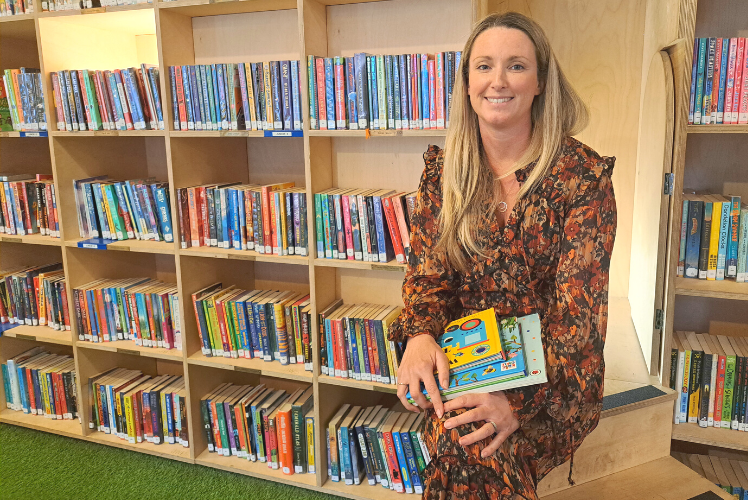
Developing good speech, language and communication skills is fundamental to young children’s learning. Learning to talk underpins making friendships, participating in group activities, and developing higher level thinking skills. In order to become competent readers and writers, children need to have developed their understanding of language as well as the ability to express themselves.
We asked Zara Betts, Specialist Early Years Speech and Language Therapist for the States of Guernsey, to share some advice to help guide parents and professionals to support young children on their journey to becoming confident communicators. You can find further information and Language for Life resources here. Here are Zara’s top tips – from a child’s point of view!
---------------------------------------------------
1. Face to face is the best place
Looking at each other face to face helps strengthen our bond. Get down on the floor with me or crouch down in front of my pushchair. Being face to face at the table or in a highchair are all great times to talk with me. When we are face to face you can see what I am interested in and what I am trying to tell you. I can learn lots from watching your face, it helps me to understand the words you are saying.
Spending time face to face - BBC Tiny Happy People
2. A little bit of play every day
I learn best through play. Look at what I am interested in and join in with me. Talk about what we are doing, I will learn lots of new words this way. I love to play and chat at anytime – bath time, nappy changing, walking to nursery are all great times to play.
15 Quick Activities for Babies That Take Less Than 10 Minutes - BBC Tiny Happy People
3. Make it fun for me and you
I love it when you use fun words and noises like, “wee,” “pop,” “splosh” and “uh oh.” These words stand out to me because you say them in an exciting way. Add in some facial expressions, gestures and actions too. You could mime ‘blowing a kiss’ or point to your car keys when it is time to go in the car.
Learning from actions - 9-12 months - BBC Tiny Happy People
4. Taking turns helps me learn
Copy the sounds I make or the actions I do. This will help us take turns – just like a little conversation. Try to pause and wait for me to do or say something to take my turn. Sometimes it takes me longer to think so give me some extra time. Wait for me to do or say something and then reply.
Turn taking: Why is turn taking important? Turn taking games for babies - BBC Tiny Happy People
5. What can we see? Please tell me!
Tell me what I can see around me, even before I can talk. Watch for the things I am trying to tell you and give me the words for what I am trying to say. Try not to ask me too many questions. It is more helpful to tell me so I can hear the words and remember them.

6. Add in a word to what you have heard
Listen to the words that I use and try to add in 1 or 2 words, e.g. if I say “look bus” you could say “look a big bus.” This helps me to build my sentences so next time I can use more words.
Helping toddlers talk in full sentences - BBC Tiny Happy People
7. Songs and Rhymes at anytime
I like to hear the same rhymes again and again. The repetition helps me learn. It helps me most when you sing the rhymes with me. I love joining in with the actions – this helps me understand the words. Nursery rhymes help me to learn new words and will help me later when I learn to read and write.
Benefits of singing nursery rhymes: Why are nursery rhymes good for babies? - BBC Tiny Happy People
8. Let’s Look at a Book
It is never too early to start looking at books with me. You don’t have to read all the words, just talk to me about what we can see. Try not to ask me too many questions, I learn best when I hear the words you use. Reading the same book again and again helps me learn new words.
Sharing books with toddler - BBC Tiny Happy People
9. Turn “screen time” into “you and me time”
It is hard for me to listen to two things at the same time so turn off the TV and screens when we are playing. If we are watching a screen, talk with me about what we can see. I learn words best when we are talking together. Being on screen can be distracting for me and the grown ups so when we are talking and playing please put the screens away.
How is the rise in screen time affecting children? - BBC Tiny Happy People
10. Celebrate our home language – it is part of me!
Talk with me in the language you know best. If my home language is strong I will be able to learn other languages as I grow up. I can learn any language at birth. I can even learn 2 or more languages at the same time. Learning more than one language will help me in the future.
For more information on children's speech development, visit the States of Guernsey Language for Life page here. Looking for new books to read with little one? Search the catalogue here.

